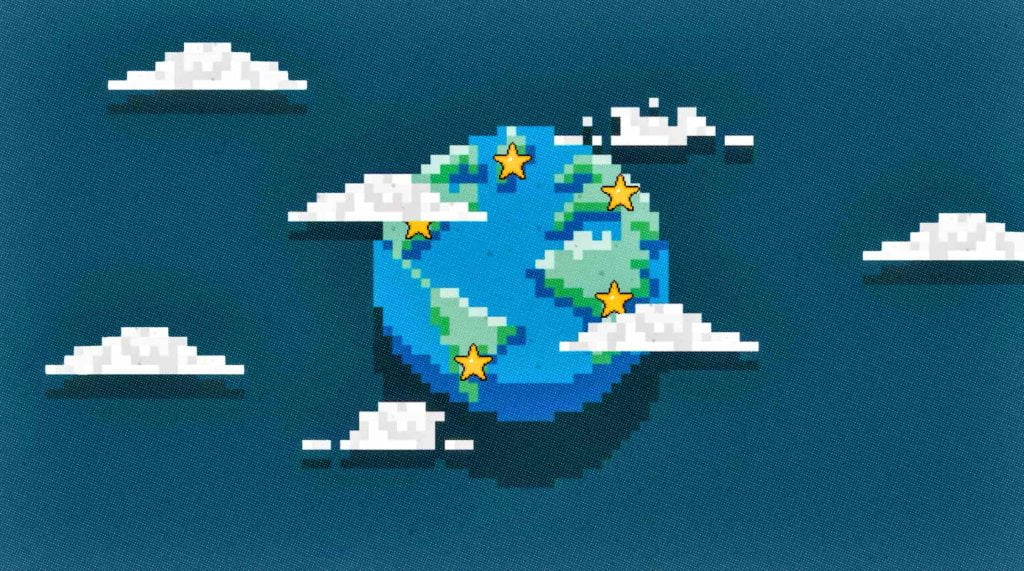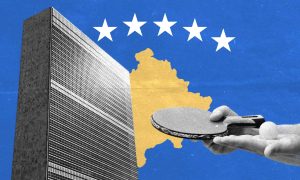Can the EU redefine what it means to be European in a globally connected world?
Europe is a continent; a land mass. Politically, of course, Europe is much more. It is an entity. The history of its various nations interlaces intricately, more so than with other parts of the world, as does its culture. Its aspirations are also different, though many of these overlap with those of people all around the world. The EU encapsulates some of these hopes, such as a desire for peace, security, justice and prosperity.
Sadly, however, the EU does not always strive for these goals with excellence; far from it! Its environmental and immigration policies, for example, are tepid, occasionally even toxic, while its perceived moral high ground dips, at times, in the filthiest gutter. This is the case with regards to it stance on Israel, as it backs the terrorist state in its genocide and systemic ethnic cleansing of the people of Gaza. It will take a lot more than crying: “Out, Damned Spot!” to wash away this crime; for its complicity is nothing less than that: a heinous crime that is nothing short of a crime against humanity.
Still, in principle, and often even in practice, the EU is a remarkable institution. In particular, it has shone a light on what a federal Europe, or even federal world, can look like. It has done this primarily by demolishing the strangling tyranny of borders and permitting the lifeblood of enterprise and free movement to flow unhindered. Moreover, despite the fabricated scaremongering of the Brexit movement, nation-states are still free to make their own decisions and their citizens entitled to choose their own leaders… even uncouth ones. It is no wonder then, that many countries in Europe and some from beyond are keen on joining the block. Understandably, this involves a stringent vetting process in order to prevent the EU from becoming as tarnished as the United Nations, whose priority is size rather than substance.
Jumping through the hoops
As of January 2024, there are nine countries officially acknowledged as candidates for EU membership: Albania, Bosnia and Herzegovina, Georgia, Moldova, Montenegro, North Macedonia, Serbia, Turkey and Ukraine. These nations have been recognised by the European Union as having met the initial criteria to apply for membership and are in various stages of the accession process. Kosovo also stands as a potential candidate, having expressed interest and applied for EU membership, but not yet achieved official candidate status.
What these countries have all in common is the fact that they are within the European sphere, even if only just. Turkey, in fact, only has 3% of its territory and 10% of its population in Europe. This “European” requirement was stipulated by the Maastricht Treaty (Article 49), which specifically limited membership to European countries that were committed to democracy. Of course, this may change as the union evolves, and countries that are not in Europe may eventually be welcomed into the block. Morocco and even Canada, for instance, have been touted by commentators as possible candidates. Nevertheless, Morocco’s 1987 application was rejected because it was not a European state, so the accession criteria would have to change for extra-European expansion to become possible.
As for the existing candidate countries, what are these hoops they need to jump through in order to be accepted into this exclusive club?
The criteria for accession are often referred to as the “Copenhagen criteria,” as they were established at the Copenhagen European Council, in 1993. There are three main requirements revolving around political, economic and legal criteria. Politically, the country should have stable institutions guaranteeing democracy, the rule of law, human rights and respect for and protection of minorities. Political corruption, of course, is one of the main stumbling blocks here. Economically, the nation should also have a functioning market economy and the capacity to cope with competitive pressure and market forces within the EU. This includes sound public finances, control of inflation, and stable exchange rates. As for the legal criteria, prospective members must align their national laws and regulations with the body of EU laws and policies known as the “acquis communautaire.” These laws cover a range of areas across various sectors, such as environmental policies and consumer protection.
Meeting these criteria is not an easy or quick process; it involves a rigorous evaluation process by the EU Commission, along with negotiations between the candidate country and the existing EU member states. Moreover, a single member state has the power to veto the accession of a new country, because when a candidate country seeks to join the EU, its accession needs the unanimous approval from all existing member states. The reasons for a veto can vary, ranging from concerns about the candidate country’s readiness, unresolved disputes, geopolitical considerations, or other strategic interests of the existing member states.
Consensus from all member states, of course, is not always easy. Currently, for instance, we have Austria blocking Romania and Bulgaria from joining the Schengen area because of perceived security concerns; and Hungary’s Prime Minister Viktor Orban undermining Ukraine’s fast-track accession talks in order to ingratiate himself with Putin on the one hand and force more leeway regarding his hardline right-wing policies on the other. This is the same game Turkey’s President Recep Tayyip Erdoğan was and is playing with NATO around the accession of Finland and Sweden to the alliance, respectively. Clearly, this strict requirement for unanimity leads to abuse and should therefore be scrapped in favour of a more proportional voting method. Not only will EU expansion stall with such a system, with every added member its chances of growth will eventually grind to a complete halt.
To be or not to be European alone
Proximity made sense when the world was a lot bigger. It no longer is. Moreover, ethical prerogatives are in certain areas beginning to take precedence over religious and cultural ones. This means that European expansion beyond continental confines should not be dismissed offhand. More countries would then be able to reap the benefits of the union, such as free trade, freedom of movement, financial safety nets, human rights standards and jointly funded projects. Undeniably, as the world stands today, few countries would fit the bill. This is not to say that Europe is a utopia made up of squeaky-clean countries. Besides, nations change as their governments do. We only need to see the challenges Poland’s newly appointed Prime Minister Donald Tusk is facing trying to re-democratise the country after years of political abuse, to get a sense of this.
Nevertheless the opportunity should be there, protected by norms and redlines. Indeed, these will be crossed at times, as they have been horrendously with regards to Gaza, and though there will always be voices from within calling foul, this, of course, is not enough. Stricter interpretations of what is and what is not acceptable, therefore, need to be outlined. True, even the clearest parameters are not fool-proof. After all, we are living through what is an evident and brutal genocide in Gaza, with Europe not only observing but complicit, as South Africa moves to bring Israel before the International Criminal Court.
Whether an enlarged and more global union would make such shocking anomalies less likely is a matter of conjecture. What is certain, however, is that steps towards a more federal world outlook and reality are the best way to ensure human prosperity and human rights are indeed human and not merely national. Nevertheless, unless “we, the people” do not push for this and for what is right, we will forever be the pawns of manipulative political greed.




















